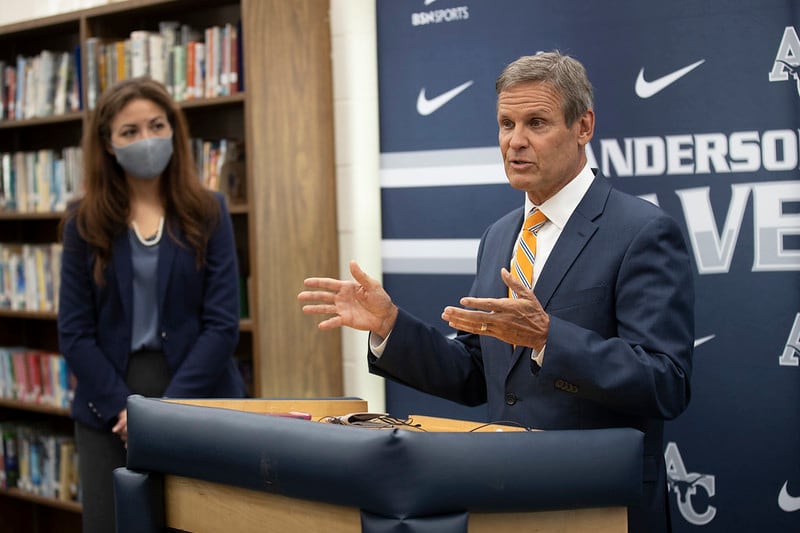Gov. Bill Lee called Tuesday for a special legislative session next month to focus on escalating challenges with Tennessee education during the pandemic.
The Republican governor wants the newly elected 112th General Assembly to convene on Jan. 19 to look specifically at education before taking up other business during its regular session.
On the agenda will be questions about state testing accountability next spring as the pandemic continues, as well as funding for teacher pay and schools for the following academic year. Lee also wants lawmakers to approve initiatives to address learning loss and a comprehensive literacy package to improve students’ reading proficiency.
“We know that the COVID-19 pandemic has caused immense disruption for Tennessee’s students, educators, and districts, and the challenges they face must be addressed urgently,” Lee said in a statement. “Even before the virus hit, and despite years of improvement, too many of our state’s students were still unable to read on grade level. I’m calling on the legislature to join us in addressing these serious issues so we can equip our hardworking educators and districts with the resources and supports they need to set our students on the path to success.”
Leaders of both chambers of the General Assembly said they support the special session.
“Tennessee has made tremendous improvements in education over the last decade. The virus has begun to put all of that at risk,” said Lt. Gov. Randy McNally. “It is of paramount importance that we take steps to reverse the learning loss that has taken place and prevent any further erosion of our progress.”
House Speaker Cameron Sexton said a statewide response is necessary to blunt the pandemic’s impact on education.
“Our goal is to make sure students are learning in the classroom, teachers have the resources they need, and our students have additional assistance in their educational journeys to improve their chances of success,” Sexton said.
Details about each issue will be released by Education Commissioner Penny Schwinn “in the near future,” according to a news release from the governor’s office. That includes a plan to launch a literacy program dubbed “Reading 360,” which will leverage a federal grant to support a phonics-based approach to reading instruction in the early grades.
In early 2020, the legislature appeared to be on track to approve a major literacy package. However, the spreading coronavirus and a related economic slowdown sidelined the $36.5 million proposal in June.
The same GOP-controlled legislature maintained funding for K-12 schools for this academic year, but also rolled back a promised pay raise for teachers and rejected Democrats’ calls for emergency education funding.
The leader of the Senate Democratic caucus said Tuesday that any new education investments should address systemic funding issues that go beyond this year’s learning losses.
“The coronavirus did not create inequities in education and it is not the cause of our teacher retention crisis, but it did make these problems worse,” said Sen. Raumesh Akbari of Memphis.
“No matter what zip code you’re in, every child deserves a great, well-funded public school, and our teachers deserve a safe working environment that respects and rewards their contributions,” she said.
Tennessee’s last special session was in August after the governor called legislators back to Nashville for a week. They passed protections to businesses from lawsuits arising from the coronavirus and new penalties for protesters camped on state property to demand racial justice.





